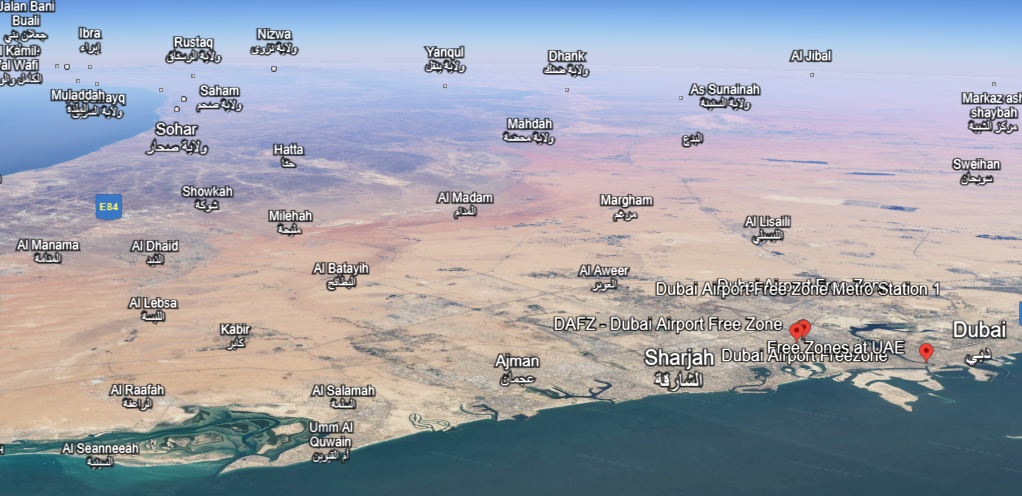Free zones in Dubai are specialized economic areas designed to encourage international trade and investment by offering a range of incentives tailored to businesses. They provide a unique opportunity for foreign entrepreneurs to establish and operate companies in the UAE without the constraints typically associated with mainland businesses.
1. Structure of Free Zones
- Regulatory Framework: Each free zone operates under its own set of rules and regulations, which are designed to facilitate business operations. The regulations are typically more relaxed compared to mainland regulations, allowing for greater flexibility in business management.
- Licensing Authority: Free zones have their own governing authorities responsible for issuing business licenses. This means that businesses can obtain their licenses more quickly and with fewer bureaucratic obstacles.
- Types of Licenses: Free zones generally offer several types of licenses, including:
- Trade License: For companies engaged in buying and selling goods.
- Service License: For businesses providing services.
- Industrial License: For manufacturing and industrial activities.
- E-commerce License: For businesses operating online.
2. Key Benefits of Operating in Free Zones
- 100% Foreign Ownership: As previously mentioned, one of the most attractive features is that foreign investors can own 100% of their businesses, which is especially beneficial for expatriates looking to establish a presence in the UAE.
- Tax Exemptions:
- Corporate Tax: Many free zones offer a 0% corporate tax rate for a specified period (often renewable, up to 50 years).
- No Import/Export Duties: Goods imported into the free zone or exported from it are usually exempt from customs duties, reducing operational costs significantly.
- No Personal Income Tax: Individual expatriates working in free zones are not subject to personal income tax, which can lead to substantial savings.
- Full Repatriation of Profits and Capital: Investors can repatriate 100% of their profits and capital without any restrictions, allowing for greater financial freedom and flexibility.
- Streamlined Business Setup: The process of setting up a business in a free zone is generally faster and less cumbersome than that of a mainland business. Many free zones offer one-stop-shop services that assist with all necessary paperwork, immigration, and licensing.
- Flexible Office Solutions: Free zones often provide a range of office solutions, from virtual offices to fully furnished office spaces and warehouses, accommodating businesses of all sizes.
3. Sector-Specific Free Zones
Dubai hosts numerous free zones, each designed with specific industries in mind, providing tailored infrastructure and services. Here are some prominent examples:
- Dubai Internet City (DIC):
- Focus: Technology and IT companies.
- Features: State-of-the-art facilities, networking opportunities with tech firms, and access to a skilled workforce.
- Dubai Media City (DMC):
- Focus: Media, advertising, and entertainment industries.
- Features: A vibrant community of media professionals, access to industry events, and support for media-related businesses.
- Jebel Ali Free Zone (JAFZA):
- Focus: Trade and logistics.
- Features: Proximity to Jebel Ali Port, one of the largest ports in the region, facilitating international trade and logistics.
- Dubai Healthcare City (DHCC):
- Focus: Healthcare and medical services.
- Features: A hub for healthcare providers, medical education, and research institutions, fostering innovation in health services.
- Dubai Multi Commodities Centre (DMCC):
- Focus: Commodities trading.
- Features: Flexible regulations, a supportive ecosystem for commodity businesses, and a strategic location for trade.
4. Operational Considerations
- Restrictions on Business Activities: While free zones offer numerous advantages, businesses must adhere to specific restrictions. For instance, free zone companies generally cannot conduct business directly with the UAE mainland without a local distributor or partner.
- Work Visas and Residency: Free zones facilitate the issuance of work visas for employees, allowing businesses to hire a diverse workforce. Each free zone has its own quota for work visas, which is based on the size and type of business.
- Compliance and Reporting: While the regulatory environment in free zones is generally more relaxed, businesses are still required to comply with specific reporting and auditing requirements, as mandated by the governing authority of the free zone.
5. Conclusion
Free zones in Dubai represent a strategic initiative to attract foreign investment and foster economic growth in the UAE. By offering a range of benefits, including tax exemptions, complete foreign ownership, and streamlined business processes, they provide an attractive environment for entrepreneurs and businesses.For companies looking to establish a presence in the UAE, understanding the advantages and operational dynamics of free zones is essential. These zones not only facilitate entry into the Dubai market but also provide a platform for businesses to thrive in a globally competitive landscape.Investors and entrepreneurs considering Dubai as a business destination should carefully evaluate the various free zones and select the one that aligns best with their industry and business goals.



